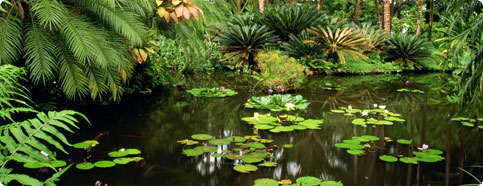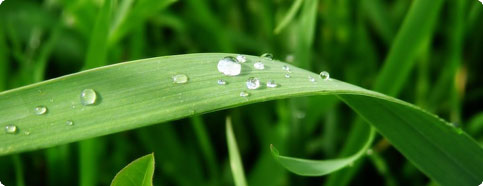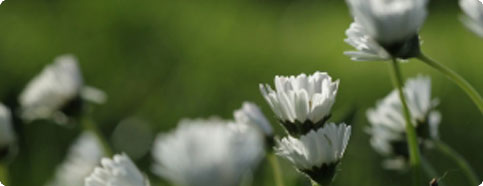Flora Library
Search for chemical insecticide


















chemical insecticide
Listing 1 - 10 from 149 for chemical insecticide
pests and diseases pest control african violets bacillus thuringiensis plant room american rose society pesticide sprays non chemical disease spores consulting rosarian banner maxx application rate alfalfa meal bloom stem till agriculture powdery mildew
Cankerworms Slowed by Cold Weather
... shrub from unsightly defoliation. When the cankerworm larvae are larger, you can use either a chemical insecticide or Bacillus thuringiensis. Another pest group, leaf rollers and leaf tiers, could cause more ... control leaf rollers and tiers, it can be effective in some cases. Alternatively, use a chemical insecticide. Young leaf rollers may be mistaken for cankerworms. They both spin down on a ...
gardenline.usask.ca
Pesticides: Alternatives to a Chemical Solution
... to use a chemical insecticide to control the insects. In this particular case, though, a chemical solution is not available. Because the larvae are within the leaf tissue itself, a "systemic" insecticide (one ... them. No such insecticide is registered for willows for domestic use in Canada. In many such cases of insect infestation, the problem is not serious enough to warrant chemical treatment. In ...
gardenline.usask.ca More from this site
Pests & Diseases
... powdery mildew. 4. Pests and diseases can be attacked with chemical pesticides, more natural and traditional treatments, and now, in the ... soil mealybugs is to use a soil drench made of a chemical insecticide. This may be only partially effective as the bugs can ... upwards. A seriously infested plant will die within weeks. While chemical miticides are available, it is very difficult to defend against ...
www.avsc.ca
Biotechnology and the Environment
... of Contents Effects of Biotechnology on Agricultural Chemical Use Bioremediation Environmental Biosensors Effects of Biotechnology on Agricultural Chemical Use Biotechnology has the potential to reduce the ... in reduced chemical insecticide use in the environment. Another possible advantage to the environment is reduced fuel consumption by farm equipment as a result of fewer chemical applications. ...
www.ext.vt.edu
August - September 2003 Newsletter
... instead of a nutrient, the conditioning solution contains a chemical which dilates the stem cells to maximize water up-take. Unfortunately, this chemical can do damage if stems are left standing in ... , here's how to start. Be very sure the roses haven't been sprayed with insecticide or dusted with sulfur. This is very important. You want clean, untainted rose hips for ...
carolinadistrict.org
Pesticide Sprays
... Rosy Tips Trivia Pesticide and Chemical Sprays are confusing at times to even the chemist. This may help you to understand what to use for your insecticide and disease problem in roses ... which we are confronted as rosarians for our pesticide spray possibilities. “Propiconazole”, the common chemical name for the active ingredient in Banner Maxx is also known by many different product ...
colonialdistrictroses.org
Calendar for Growing Roses
... Orthene insecticide, Kelthane miticide, and Funginex in one solution, and should be used weekly. Funginex should be used every week and an insecticide such as Orthene may be added whenever an insecticide is ... include a long sleeved washable shirt and trousers, a brimmed cap or hat, goggles, and chemical proof gloves. Eyes should be protected by goggles. A respirator is recommended. Clothing should be ...
carolinadistrict.org
INSECTICIDES, INSECTICIDE PLACEMENT, AND SUGARBEET PHYTOTOXICITY
... (MIF), and in front of the press wheel with a drag chain to incorporate the chemical (PW). Each treatment and an untreated check were replicated 12 times. Phytotoxicity and plant stand ... . Phytotoxicity was recorded as the amount of biomass reduction (delayed or reduced plant growth) in insecticide treated plots compared with the untreated check plots, and plant stand counts were made by ...
www.uidaho.edu
The Bug Review-Bronze Birch Borer
... if left uncontrolled, the infestation can move downward and kill the entire tree. Control Non-chemical: Avoid planting white birch that is highly susceptible to this pest in Illinois home ... watering and fertilizing practices. Using organic mulch across the root zone helps keep roots cool. Chemical: Insecticide may be applied in late spring early summer. Contact your county Extension office for ...
www.urbanext.uiuc.edu
Open Directory - Business: Agriculture and Forestry: Biologicals
... insects and information to control pests, and disease without using poisonous chemicals and insecticide in your organic gardening, farming and greenhouse. Canadian Bio-Systems Inc. - Manufactures enzymes ... horticulture, nursery, and turf management. Cooper Mill Ltd. - Suppliers of biological and chemical control products for insect and vegetation management. Divergence - A biotechnology company ...
dmoz.org
These listings are filtered
View all for chemical insecticide